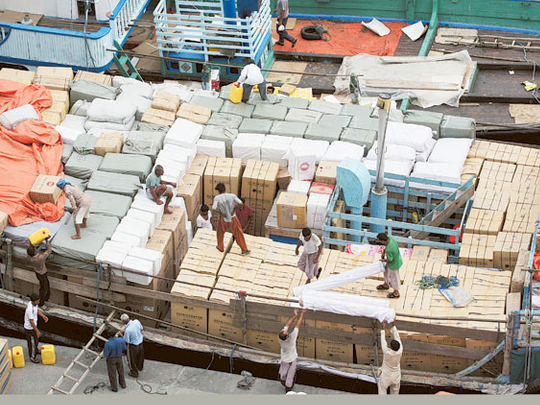
Dubai: Portable PC shipments into the UAE will decline by at least 20 per cent with the lifting of US sanctions on some electronic exports to Iran, industry experts said.
On May 30, the US issued a statement on the lifting of US sanctions on mobile phones, SIM cards, laptops, personal communications tools, modems, routers, tablets, personal computing devices and other gadgets.
“Presently, majority of PC market players are still waiting for the official communication regarding this change of law. until then, no action has been taken by market players. We will continue to see re-exports from Dubai to Iran until then. But if implemented, portable PC shipments into the UAE will decline by at least 20 per cent,” Fouad Rafik Charakla, Research Manager at IDC, told Gulf News .
Sanctions have been in place for more than 32 years.
The new rule will allow companies to legally export devices to Iranians but supply to the government is still not allowed.
According to an industry expert, Iranians will be happy about this but the biggest challenge posed by this change will be the financial sanctions. People are still not allowed to trade with Iranian currency for dollar.
The computer manufactures are still assessing the situation and they haven’t got any official statement from their headquarters.
“I have heard the news but I haven’t seen a document that gives us the dos and the don’ts. We will be the contacting the legal department for advise,” said Ameen Mortazavi, vice-president for Acer Middle East and Africa.
He said there is no clarity on the news. As there is no clarity Acer will be very cautious.
“I will also wait for the Iran’s presidential elections that are scheduled for June 14 as the US might change their mind. Acer was planning an assembling plant in Iran about eight years ago, but I cannot comment now on what Acer will do,” said Mortajawi.
Positive effect
Nadeem Khanzadah, Head of Retail at Jumbo Electronics, expects the move to bring in a positive effect on retail sales.
“We see a rise as retail sales will become more organised. Re-exports was happening even before through unofficial channels. So an average Iranian who was not able to come and buy from Dubai will be officially able to do so,” he said.
Right now the tax in Iran is very high when compared to Dubai, Khanzadah said, and added that it will be cheaper for an average Iranian to come and buy the product from here.
But Emax CEO Neelesh Bhatnagar, said that even though the tax is high in Iran, the issue is the volume. He wonders how many individuals will come and buy from Dubai.
“All the shipments routed to UAE will suffer, so re-exports will take a hit. At the same time, this is a big opportunity for all the retailers to set up a base in Iran. If direct imports are allowed it is a good retail opportunity for us. We will definitely take the opportunity,” Bhatnagar said.
For the moment, HP is still assessing the situation and our corporate team has not made any decisions, said Salim Ziade, General Manager of Personal Systems Group (PSG) at HP Middle East.
“For us it is business as usual. We haven’t changed any policies as of now,” said Ziade.












